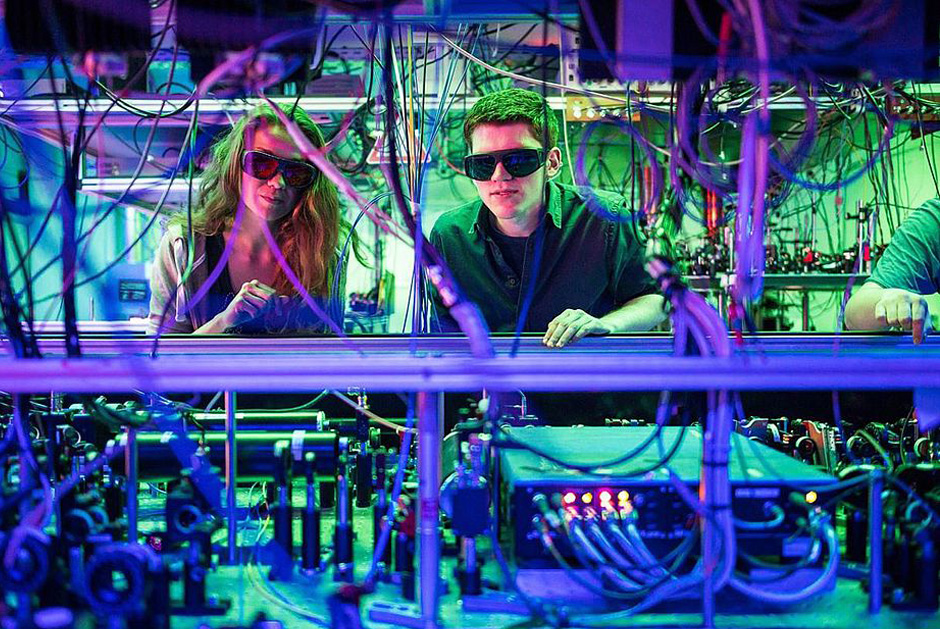Quantum Technology FabLabs: Make, Learn, Share – offene Bildungs- und Kollaborationsumgebungen für Unternehmen, Forscher:innen und den wissenschaftlichen Nachwuchs

Studierende im Quantenlabor
Bild: Oliver Dietze, Universität des Saarlandes
Quantum Technology FabLabs: Make, Learn, Share – offene Bildungs- und Kollaborationsumgebungen für Unternehmen, Forscher:innen und den wissenschaftlichen Nachwuchs

Studierende im Quantenlabor
Bild: Oliver Dietze, Universität des Saarlandes
Quantensensoren der 2. Generation werden den Maschinen- und Anlagenbau revolutionieren. Kalibrationsfreie Messungen mit ungeahnter Empfindlichkeit und Genauigkeit werden möglich. Die Projektpartner möchten frühzeitig für die disruptiven Technologien begeistern und Innovationen fördern.
Ziel des Projektes ist es, ein wirkungsvolles und skalierbares Bildungs- und Kollaborationsökosystem für Sensorsysteme der zweiten Quantengeneration im Maschinen- und Anlagenbau zu etablieren. Um die potenziell disruptiven Technologien als „Enabler“ für neuartige Produkte mit Erfolg in Unternehmen nutzen zu können, und um umgekehrt bestehende Kompetenzen des industriellen Bereichs für die Entwicklung und Fertigung von Quantensensoren aufzuschließen, wird der Kompetenzaufbau in Unternehmen, die Fachkräfteentwicklung und interdisziplinäre Kollaboration massiv und nachhaltig unterstützt.
Der erstmalige Aufbau eines QuFabLabs als Bildungs- und Kollaborationsökosystem steht im Vordergrund. Erstellung, Integration und Evaluation von didaktischen Werkzeugen und Open Educational Resources (OER) Materialien für das Hands-on-Angebot des FabLabs sowie für eine virtuelle Lernumgebung bilden den innovativen Kern.
Mit dem Ausbau des 600 qm großen FabLab der Hochschule Ruhr-West zum Quanten Technologie FabLab wird dauerhaft eine wirksame Bildungs- und Kollaborationsumgebung etabliert, international verankert und als Best-Practice-Konzept übertragbar gestaltet.
Projektkoordination:
Prof. Michael Schäfer
Hochschule Ruhr West, Institut Informatik
Bottrop